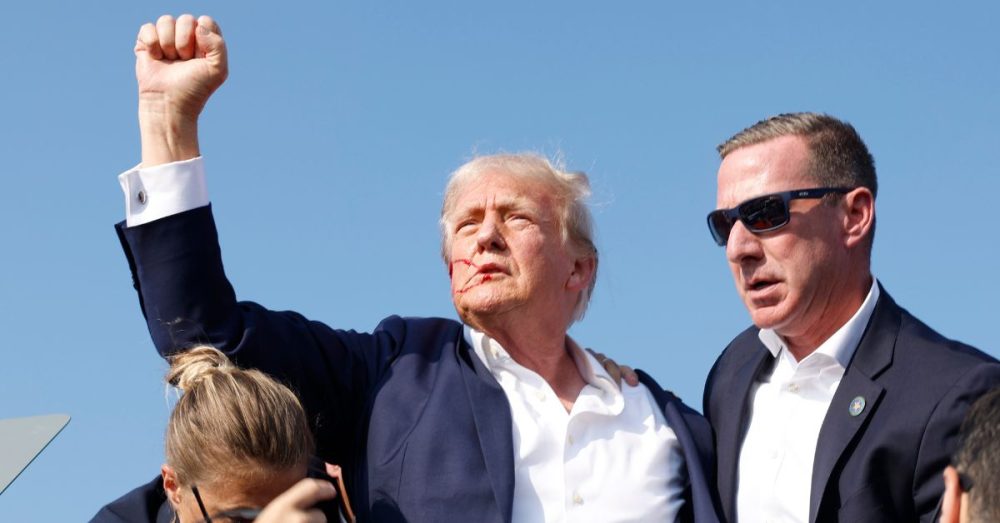(The Center Square) – An independent review panel called for leadership changes and refocusing the U.S. Secret Service on its core mission after multiple severe and fatal failures during former President Donald Trump’s July 13 campaign rally in Pennsylvania.
The Department of Homeland Security’s Independent Review Panel identified six critical Secret Service failures at the rally and called for a raft of changes at the agency to prevent future failures.
“The July 13 assassination attempt was not the work of a trained foreign adversary prepared to conduct a multi-dimensional attack and willing to sacrifice themselves in the process,” according to the report. “Rather, a young, local Pennsylvania man who had seemingly conceived of and executed his assassination plot within days after the former president’s rally was publicly announced had managed, with striking ease, to circumvent the Secret Service’s ‘no fail’ protective mission.”
Thomas Matthew Crooks, 20, struck Trump in the ear, killed one person and injured two others when he opened fire at the former president’s July 13 rally near Butler, Pennsylvania. Secret Service agents shot and killed Crooks.
The panel detailed key failures that day, including:
- The absence of personnel to secure the AGR building (the large, connected complex of buildings to the immediate north of the Farm Show grounds)
- The failure to mitigate the line of sight threat posed by the AGR building;
- Numerous communications issues including but not limited to the split structure of communications on July 13 which physically and electronically separated the Secret Service’s “Security Room” from the communications post used by local law enforcement;
- The failure of anyone from the Secret Service or law enforcement to encounter Crooks, despite his being first spotted at approximately 4:26 p.m., more than ninety minutes before he began shooting at former President Trump and the assembled crowd;
- The failure of anyone to inform former President Trump’s detail leadership about Crooks either before the former president took the stage or, even more crucially, in the last couple minutes when Crooks had taken to the roof of the AGR building; and
- The failure of the detection component of the Secret Service’s Counter Unmanned Aerial System during a critical period of time when it could have detected Crooks operating a drone.
The panel’s report also made recommendations to improve the Secret Service.
“Two of the most important recommendations involve the necessity of new leadership at the Secret Service and the criticality of re-focusing the Secret Service on its core protective mission,” according to the report. “But there are many others regarding a wide range of topics including overhead surveillance, communications setup, integration with state and local partners, effective auditing and continuous improvement mechanisms, line of sight mitigation, extraction training, and numerous others.”
The panel also examined deeper concerns about the agency and criticized the Secret Service culture and lack of critical thinking, among other issues.
“The panel has observed that many of the Secret Service personnel involved in the events of July 13 appear to have done little in the way of self-reflection in terms of identifying areas of missteps, omissions, or opportunities for improvement. July 13 represents a historic security failure by the Secret Service which almost led to the death of a former president and current nominee and did lead to the death of a rally attendee,” according to the report. “For personnel involved, given the multi-factor nature of the security failure, even a superficial level of reflection should yield insights regarding lapses and potential remediations. But many personnel struggled to identify meaningful examples of either type of observation – what went wrong and what could be done better in the future to prevent a similar tragedy from reoccurring.”
U.S. Secret Service Acting Director Ronald Rowe said the agency is already making changes.
“We respect the work of the Independent Review Panel and will carefully examine the report and recommendations released today,” Rowe said. “We remain fully committed to working with the Administration, the Department of Homeland Security, and Congress to address the failures that contributed to the July 13 attempted assassination of former President Trump in Butler, Pennsylvania.”
Rowe said the agency has already improved its teams.
“We have already significantly improved our readiness, operational and organizational communications and implemented enhanced protective operations for the former president and other protectees,” he said. “This includes making changes to better integrate with our state and local law enforcement partners and augmenting our protection with support from the U.S. Department of Defense and other agencies.”
Rowe also said the agency is putting together more comprehensive changes.
“We are developing a comprehensive plan aimed at driving a fundamental transformation within the Secret Service to ensure we are appropriately configured to execute our dual integrated mission of protection and complex investigations,” he said. “This plan focuses on increasing and retaining the agency’s personnel, modernizing our technology, and building a training plan that is sustainable now and into the future.
“We acknowledge that July 13 did not occur because of a lack of resources, however, our enhanced protective model implemented after July 13 requires additional people, equipment, and asset capabilities. The agency is also working with Congress to increase the agency’s budget so that we can make this paradigm shift a reality and ensure that our people have the resources they need to successfully carry out the mission.”
The panel dedicated its work to the firefighter killed at the rally and two others who were injured in the shooting.
“The Panel dedicates its work to Corey Comperatore, James Copenhaver, David Dutch, and their families in the hope that no one again suffers the tragedies you have endured.”


